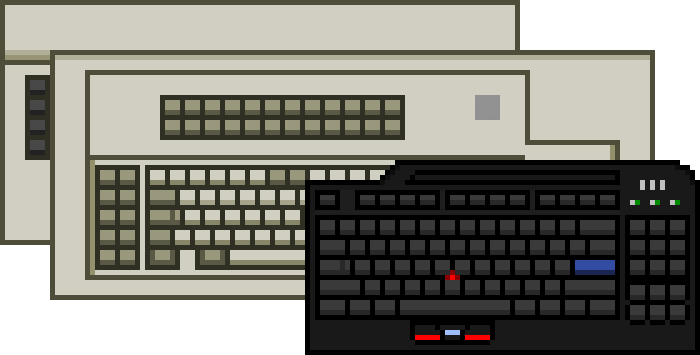P/N 18P7973 - Model M13 Keyboard Details & Specs
Provided by the ASK Keyboard Part Number Database
IBM 3494 Track Pointer Keyboard
| Type | Model M13 FSR Keyboard |
|---|---|
| Known host systems | IBM TotalStorage 3494 Enterprise Automated Tape Library |
| OEMs or ODMs | Unicomp |
| Keyswitches | IBM membrane buckling springs |
| Earliest appearance | |
| Original keycaps | PBT with dye-sublimated legends |
| Cover colour | Pearl White |
| Branding | IBM logo across lock-light LEDs overlay |
| Feet | Single-setting flip-out feet |
| Protocol | IBM Mode 2 (scancode set 2) |
| Connection | Grey straightened-style fixed dual 6-pin mini-DIN PS/2 cable |
| Number of keys | 102 |
| Form factor | Full-size |
| Layout & language | Italian |
| Integrated pointing devices | "Lexmark-Unicomp" FSR pointing stick |
| Sources | Doc: IBM TotalStorage Enterprise Automated Tape Library 3494 Parts Catalog (#18P9782) [source: kev009] |
| Related Directory entries | IBM 3494 Track Pointer Keyboard |
| Data last updated |

